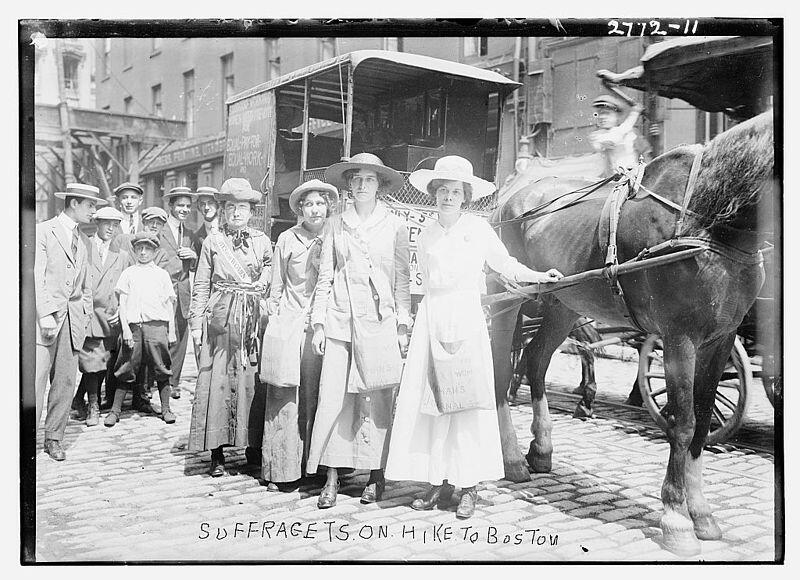- Trial Court Law Libraries

Article 9 (1780)
All elections ought to be free; and all the inhabitants of this commonwealth, having such qualifications as they shall establish by their frame of government, have an equal right to elect officers, and to be elected, for public employments.
Precedents, Following Law, and Quotations
Abigail Adams, “Abigail Adams to John Adams,” March 31, 1776, Massachusetts Historical Society, Adams Papers Digital Edition, Adams Family Correspondence, volume 1:
“If perticuliar care and attention is not paid to the Laidies we are determined to foment a Rebelion, and will not hold ourselves bound by any Laws in which we have no voice, or Representation.”
Mary Wollstonecraft, Vindication of the Rights of Woman, Chapter 9, “Of the Pernicious Effects Which Arise From the Unnatural Distinctions Established in Society” (1792):
“Is not that government then very defective, and very unmindful of the happiness of one half of its members, that does not provide for honest, independent women, by encouraging them to fill respectable stations? But in order to render their private virtue a public benefit, they must have a civil existence in the state. . .”
Alexander H. Bullock, “The Centennial of the Massachusetts Constitution”,1 Proceedings of the American Antiquarian Society 189 (1882), 223:
“The third amendment framed by the convention of 1820, and the twentieth adopted in 1857, made a radical change in the qualifications for voting at elections. The original constitution required on the part of the voter a freehold estate within the commonwealth of the annual income of three pounds, or any estate of the value of sixty pounds. This restriction of the suffrage to the possession of property was in some measure an inheritance of the people of this country, though greatly reduced from the extent prevailing in England . . . the change of industries and activities incident to the advance of a more commercial age made the restriction difficult of application… Accordingly in conformity to the whole drift of our time suffrage was thrown open to all male inhabitants of twenty-one years, by whom or for whom a state or county tax has been paid within two years in the state, having resided in the state one year and in the town six months, paupers and persons under guardianship excepted. The other change in the qualification for voting was made by the twentieth amendment in 1859, which excludes from the right of suffrage and of election to office every person who is not able to read the constitution of the state in the English language and to write his name.”
Opinion of the Justices, 165 Mass 599, 602 (1896):
“There is nothing in the Constitution which in terms prohibits women from being appointed to judicial offices, any more than from being appointed to military offices or to executive civil offices, the tenure and mode of appointment of which are provided for in the Constitution It was the nature of the office of justice of the peace, and the usage that always had prevailed in making appointments to that office, that led the Justices to advise that it could not have been the intention of the Constitution that women should be appointed justices of the peace. 107 Mass. 604. In our opinion, the same considerations apply to the office of notary public.”
Nineteenth Amendment, United States Constitution, ratified Aug. 18, 1920 :
“The right of citizens of the United States to vote shall not be denied or abridged by the United States or by any state on account of sex. Congress shall have power to enforce this article by appropriate legislation.
Opinion of the Justices, 240 Mass. 601, 609-610, (1922):
“The Constitution of Massachusetts was designed to be an enduring frame of government so comprehensive and general in its terms that a free, intelligent and moral body of citizens might govern themselves under its beneficent provisions notwithstanding radical changes in social, economic and political conditions. . . The constitutional situation has become so changed by the supervention of the Nineteenth Amendment to the United States Constitution with its consequent operation upon the Constitution of Massachusetts as to render no longer of force the opinions of the justices in 107 Mass. 604 and 165 Mass. 599. The firm foundation upon which they rested has been swept away by that amendment.”

